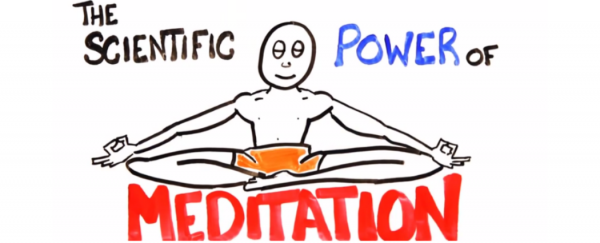Meditation is certainly not a new practice, by any stretch, and there's a scientific reason why it's stuck around for so many years.
According to the latest episode of AsapSCIENCE, brain scans taken of people meditating have shown increased activity in areas of the brain that are directly correlated to decreased anxiety and depression, and increased tolerance for pain. One such area is called the Default Mode Network (DMN), which activates when our minds are at rest and not distracted by what's going on in the outside world. When your DMN is most active, it's thought to improve your ability to form and recall memories, increase your sense of self-awareness, and could even be linked to bouts of creativity if you let your thoughts wander off.
Another possible benefit of meditation is that it makes it easier for you to be a kinder, more patient human. When scientists compared the brains of Buddhist monks, who have been meditating for much of their lives, and new meditators, they found the region of the brain associated with empathy to be much more pronounced in the monks.
"It also literally changes your brainwaves, and we can measure these frequencies," says AsapSCIENCE. "Meditators have higher levels of an alpha wave, which has been shown to reduce feelings of negative mood, tension, sadness, and anger."
Not only that, but meditation also appears to influence the physical shape and size of your brain. Observations of people who have been meditating for eight weeks revealed that grey matter - which facilitates more efficient processing - was more dense in areas associated with learning, memory formation, and emotion regulation. But in the amygdala, which is related to feelings of stress, fear, and heightened blood pressure? Decreased grey matter.
And that's just the brain. Studies suggest that mediation can also have an effect on everything from a person's heart health to the strength of their immune system. Watch the latest episode of AsapSCIENCE above to find out why, and head to their YouTube page to find the list of studies mentioned.
Brb, I've got some quiet sitting to do.
Source: AsapSCIENCE
